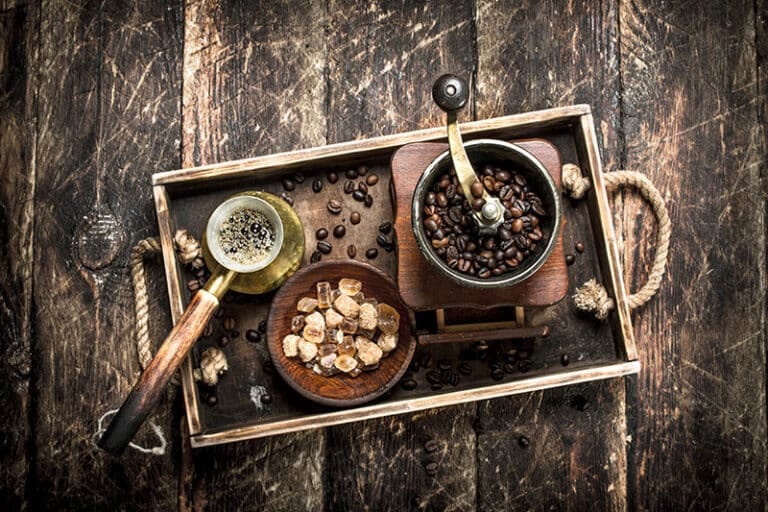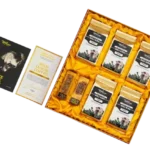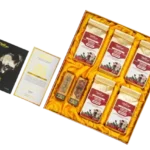Kopi Luwak, often referred to as the world’s most expensive coffee, originates from Indonesia, where it is produced in various regions. Among them, Bali stands out as a key producer, attracting coffee enthusiasts from around the world. Known for its pristine landscapes, rich cultural heritage, and fertile volcanic soil, Bali offers an ideal environment for cultivating some of the finest coffee beans. This article delves into the history, production, and ethical considerations of Bali’s Kopi Luwak, offering insights into why this coffee commands such high regard in the global market.
Kopi Luwak is a type of coffee made using beans that have been eaten, digested, and excreted by a small animal known as the civet (locally called “luwak”). This unique fermentation process inside the civet’s digestive system alters the beans’ chemical structure, giving the resulting coffee a distinct flavor profile that many describe as smooth, rich, and less acidic than traditional coffees.
While this coffee is produced in several Indonesian regions, including Sumatra and Java, Bali’s Kopi Luwak has gained particular fame due to the island’s reputation for high-quality agriculture, combined with its growing eco-tourism industry.
The History of Kopi Luwak in Bali
The origins of Kopi Luwak trace back to the Dutch colonial period in Indonesia, around the 18th century, when local farmers were forbidden from harvesting coffee beans for personal use. However, the locals noticed that the civet cats consumed coffee cherries, and they began collecting the excreted beans to clean, roast, and brew their own coffee.
This process remained a local secret until it gained international fame in the 1990s. Today, Bali has become a hotspot for coffee lovers who wish to experience this rare and luxurious coffee first-hand. Visitors to Bali can tour coffee plantations, learn about the intricate production process, and sample freshly brewed Kopi Luwak.
Bali’s Unique Environment for Coffee Production
Bali’s volcanic soil and tropical climate provide the perfect conditions for growing high-quality coffee beans. The island’s coffee plantations are predominantly located in mountainous regions, such as Kintamani, where the elevation helps produce beans with complex flavors. Bali’s coffee farmers are known for using traditional methods, often organic, to cultivate their crops, which adds to the allure of Kopi Luwak from this region.
Furthermore, the island’s commitment to sustainable tourism has encouraged many coffee producers to adopt eco-friendly practices. This has given rise to a market for ethically produced Kopi Luwak, where civet cats are allowed to roam freely rather than being confined in cages, which is an unfortunate practice in some other regions.
How Kopi Luwak is Made
The production of Kopi Luwak is a labor-intensive process. It begins with civet cats consuming ripe coffee cherries. The beans pass through the animal’s digestive system, where they undergo fermentation, which reduces the acidity of the beans and imparts a unique flavor. Once the beans are excreted, they are collected, thoroughly cleaned, and sun-dried before being roasted and ground.
One of the most important aspects of producing high-quality Kopi Luwak is ensuring that the beans are ethically sourced. In Bali, many plantations have embraced free-range methods, allowing civets to naturally select the ripest coffee cherries without being kept in captivity. This not only results in better-tasting coffee but also addresses concerns about animal welfare.
Ethical Concerns and Solutions
As Kopi Luwak gained popularity worldwide, so did the demand, leading to questionable farming practices in some regions. In some cases, civet cats are kept in small cages, often in unsanitary conditions, and are force-fed coffee cherries to maximize production. This practice has sparked outrage from animal rights groups and has raised questions about the ethics of consuming Kopi Luwak.
In response to these concerns, several organizations and coffee producers have begun certifying ethically produced Kopi Luwak. These certifications ensure that civet cats are treated humanely, with access to natural habitats and the ability to forage for food. Ethical Kopi Luwak is often labeled as “wild” or “organic” and typically commands a higher price due to the labor-intensive process and lower production volumes.
According to the International Coffee Organization, the ethical treatment of animals in coffee production is becoming a growing concern for consumers, particularly in Western markets. For more information, check their report on ethical coffee production practices.
The Taste of Bali’s Kopi Luwak
Kopi Luwak is renowned for its smooth, mellow flavor, which differs significantly from traditional coffees. The fermentation process in the civet’s digestive system breaks down proteins that typically cause bitterness in coffee. As a result, Kopi Luwak tends to have a more balanced and less acidic taste, with notes of caramel, chocolate, and a hint of earthiness.
Bali’s Kopi Luwak, in particular, is often described as having fruity undertones, thanks to the island’s fertile soil and favorable growing conditions. The beans from Bali are typically Arabica, which adds to the coffee’s overall smoothness and complexity.
Global Demand for Kopi Luwak
The global demand for Kopi Luwak has skyrocketed over the past few decades, with prices reaching as high as $300 to $500 per kilogram, depending on the region and ethical considerations. Bali’s Kopi Luwak, due to its reputation for ethical production, often falls on the higher end of the price spectrum. The demand for ethically sourced Kopi Luwak has been particularly strong in markets like Europe and North America, where consumers are willing to pay a premium for products that align with their values.
In 2019, World Coffee Research conducted a study on the growing market for Kopi Luwak and other specialty coffees, noting that the demand for sustainably produced Kopi Luwak is expected to continue rising.
Where to Buy Bali’s Kopi Luwak
If you’re interested in purchasing ethically sourced Kopi Luwak from Bali, there are several online retailers and local producers that specialize in wild or free-range Kopi Luwak. One such retailer is BuyLuwakCoffee.com, which offers a selection of high-quality, ethically produced Kopi Luwak beans from Bali and other regions.
Additionally, when visiting Bali, many coffee plantations offer tours and tastings, where you can purchase fresh Kopi Luwak directly from the source. Be sure to ask about the farm’s practices to ensure that the coffee is produced ethically.
Bali’s Kopi Luwak offers more than just a cup of coffee; it’s an experience steeped in tradition, culture, and ethical considerations. While the unique production process of this coffee might spark debates about its ethical implications, there are responsible producers in Bali who prioritize the welfare of civet cats and the sustainability of their farms. For those seeking to indulge in a truly unique coffee experience, ethically sourced Kopi Luwak from Bali is well worth exploring.
By supporting ethical coffee production, you’re not only savoring one of the world’s most luxurious beverages but also contributing to the preservation of traditional farming practices and the welfare of animals involved in the process.











